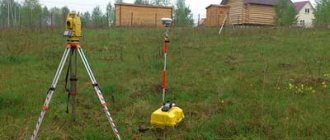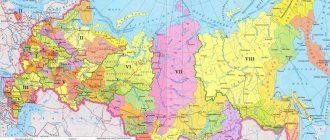The state has provided many benefits for citizens with limited legal capacity.
One of them is the allocation of land. Issued on a first-come, first-served basis.
In the article we will consider questions about the intricacies of obtaining land plots for disabled children.
What does the child’s representative need to do to receive an allotment?
What papers should I collect and prepare the documents correctly?
Is it allowed or not?
Disabled children include persons under 18 years of age. Childhood disability can be established later than adulthood if there are medical grounds and the appropriate timing of the onset of the disease has been established.
By law, a family raising a disabled child has the right to receive a free allotment of land from the state. At the federal and regional levels, programs have been developed to help improve the living conditions of disabled children.
The right to free receipt
is granted to the parents of a child whose capabilities are limited as a result of:
- serious illness;
- defect from birth;
- suffered trauma.
If a family is raising three or more children, including a disabled person, the territory will be allocated free of charge. If a family does not have many children, it is given the right to purchase land without participating in an auction.
The allocation of an allotment is made once - it will not be possible to re-exercise the rights. But if the territory has fallen into disrepair for reasons beyond the control of the person (earthquake, landslides, etc.), the family has the right to apply for the benefit again.
Disabled children are allocated free areas that are not encumbered by the actions of third parties. Parents, guardians or adoptive parents can exercise the right and represent the interests of the child.
Additional Information! If the family did not manage to receive the allotment before the child came of age, he has the right to re-apply.
Conditions for obtaining land by disabled minors
A citizen with disabilities receives land out of turn, provided there are no owners in the form of third parties. That is, the site must be free. It is noteworthy that if this rule is observed, the option is allowed when a disabled person already has land and at the same time applies for an allotment from the state.
Important
! The law strictly monitors the fact that only vacant land plots that are not encumbered by the rights of third parties are issued to disabled people.
As for registering the future property of a disabled person, this process is handled by the local administration. But in case of refusal, you should request written confirmation of this fact so that you can go to court with the received document if you wish.
How to get an allotment?
To participate in the program, a family must be identified as in need of improved living conditions.
If real estate is available, a family is recognized as needy in the following cases:
- housing area - less than 18 square meters. m. for 1 family member;
- the house does not meet sanitary standards;
- housing is located far from a specialized school or medical facility.
If a family does not own real estate, it is automatically recognized as needy. She applies for the allocation of land on a preferential basis.
If land is given to a child with disabilities not for ownership, but under a lease agreement, a house must be built on the site within three years.
If the requirement is not met, the territory will be confiscated and the right to land will be revoked. Conditions for receiving an allotment:
- the land should not be anyone's property;
- there are no encumbrances;
- if the site does not have clear boundaries, local authorities must carry out land surveying;
The area of the allocated territory is established by local authorities. A plot of land is allocated for ownership or rent. Owning a plot of land is not a reason for refusal.
Reference! A family raising a disabled child has the right to receive an allotment if it is used in the interests of the child. The disability group does not matter.
Who belongs to this preferential category?
Provision of land plots to families with disabled children is carried out in the following cases:
- his health was significantly damaged, some body functions were lost due to illness, congenital defect, or injury;
- his activities were significantly limited - he cannot move independently, serve his needs, communicate or control the process of communication with others, or learn;
- the child requires special social protection, which includes rehabilitation.
Depending on the degree and nature of developmental defects, the child is assigned one of three disability groups . It can be awarded for either 1-2 years (after this period the disability will need to be re-confirmed) or until adulthood.
Are you in line to receive free land? Find out how to check your place on the list!
For what purposes is it provided?
Other uses:
- dacha management,
- construction of a garage or other non-residential building,
- subsidiary farm.
On land for individual housing construction, it is allowed to build a house with a height of no more than three floors.
If the building is registered, people are allowed to register in it.
On a plot allocated for private household plots, it is allowed to erect a residential building if the plot is a personal plot.
Field storage is used only for growing agricultural structures. The territory for agricultural purposes is included in the composition of a vegetable gardening partnership or is used individually, without joining the commonwealth.
Purposes of using free land for the disabled
So, part of the land is provided to a citizen with health limitations if he declares his desire:
— build a residential building;
- start a subsidiary farm;
- start a garden or vegetable garden;
— install a garage, as well as other premises.
The created federal program guarantees respect for the property interests of every citizen who is considered socially vulnerable. In practice, this means that regional authorities can not only distribute plots among disabled people in need, but also provide them with subsidies, taking into account local orders and acts.
Registration procedure
Local administrations are responsible for allocating plots. It is the applicant's responsibility to confirm the benefit and need for a site for a disabled child.
Procedure:
- Registration as needy.
- Submitting an application and documents to the local administration.
- Upon approval of the application, the employee will provide a list of free territories.
- Site selection.
- Collection of documentation for concluding a transaction.
- Obtaining a cadastral passport.
- Registration of ownership rights to land plots or lease.
If a family is not satisfied with the proposed plot, it has the right to refuse and wait for a new option.
Note! If a child is over 14 years old, he has the right to independently contact the administration (with notarized consent from the parents). In other cases, parents (guardians) of a disabled child apply for a plot.
Compiling and submitting an application
There is no unified form. An application for a land plot by a disabled child is submitted by one of the parents or another person representing his interests. The document contains information about the recipient and applicant, and the purpose of the appeal.
The application displays the following data:
full name of the recipient, department;- Full name of the applicant, passport details, registration address;
- grounds for receiving an allotment;
- information about the land plot (cadastral number), in the absence of a specific plot - its intended use;
- having the status of a needy family;
- list of attached documentation.
Signed by a person representing the interests of a child with disabilities (with a transcript of the data). The date of signing is set.
An application is submitted to the local administration. A specially appointed commission reviews it and makes a decision. No state duty is paid.
Reference! Not only members of the commission, but also the guardianship service take part in the consideration of the application.
Required documents
In addition to the application, the parent submits a list of documentation established by law. The list may vary in different regions.
You will need:
- passport or other identification document;
- TIN;
- certificate of family composition (to confirm family ties);
- certificate confirming disability;
- certificate of residence (the parents' registration address must match the address of the disabled child);
- a document confirming the need to improve living conditions;
- birth certificate of the child and other children (if available);
- certificate confirming the status of a person in need.
If the documentation is submitted by the principal, a notarized power of attorney will be required.
Deadlines for making a decision and registering a loan
The processing time for the application is up to 30 days . During this time, administration staff check the accuracy of the information provided. Based on the results of the consideration, a decision is made.
Important! If the deadline for making a decision is delayed, the administration is obliged to inform the applicant about this in writing.
If a positive decision is made, the family of the disabled child must accept the allocated plot. And then use it in accordance with its intended purpose.
Where do they provide land?
You can get a plot for disabled children in any region of the Russian Federation. To do this, you need to contact your local administration.
Important! It is worth noting that a family can count on a land plot, which is located in the region where it lives with a disabled child.
Also, the land that is given for construction must be close to populated areas, which must have all the necessary communications, such as electricity, gas, sewerage and water.
What to do if refused?
Often the commission refuses to provide a site.
The reasons are:
- lack of necessary documents;
- false information;
- reuse of rights;
- the family of a disabled child has a plot of land;
- lack of vacant plots.
In the first two cases, you are allowed to re-submit your application. In other situations, it is necessary to go to court.
To appeal a decision, you must file a claim within three months, attaching a copy of the administration’s decision and documents.
The claim will not be considered if the citizen who applied has not documented the child’s disability or has registered to participate in the auction.
List of required documentation
In order to be able to get on the waiting list to receive land for construction, you need to collect certain papers and documents, namely:
- A copy of the passport of the parent who represents the interests of the child or his guardian.
- Certificate of place of residence of the applicant and the child (they must be registered in the same living space).
- A document confirming the child's disability.
- Birth certificate of a disabled child and other children and their copies.
- Documents about existing real estate, which confirm that the family needs to improve their living conditions.
Actions after it's your turn
When the family of a child with a disability waits their turn at the site, they must be notified about this. Having received the notification, the applicant must come to the administration, where he must be given a certificate of registration of property rights.
After this, the applicant must contact the Rosreestr authorities or the MFC in order to register the property. In this case, you need to pay a state fee of 300 rubles. The plot must be registered within 30 days after the certificate is issued.
Appeal to authorities
After collecting all the necessary papers, you need to write an application. In some regions, special forms may be issued for this, which may differ from each other; in some areas, the application can be drawn up in free form.
Usually, you need to write a request to provide land to a disabled child. The applicant must also indicate his personal information and who he is to the child.
In addition, in the application it is worth writing for what purpose the land is being taken . If the site has already been selected, then it is necessary to indicate information about it, such as the address of the land plot, cadastral number, the presence of encumbrances and buildings on it. At the bottom of the application you need to write a list of attached documents, also put a date and signature.
- Sample application for receiving a plot for a family with a disabled child
The completed application and the documents attached to it must be taken to the local administration. It is considered for approximately 14 days.
After this, the applicant must be called and informed of the decision. If the administration makes a positive decision, then the administration can immediately provide him with the plot. If there are no suitable land plots, then the family of a disabled child is put on a waiting list.
Answers to common questions
Question No. 1. Can a large family with a disabled member receive 2 plots for different reasons?
The allocation of a plot is made only on one basis. To indicate the reason, you will need to clarify which of the queues will allow you to receive the memory faster. Benefits for families with disabilities are provided by federal legislation, and for large families - by regional regulations.
Question No. 2. Can a subject of the Federation refuse to allocate a plot of land due to the lack of a program or for other objective reasons?
Compliance with federal legislation is mandatory for constituent entities. Persons cannot be denied the right to exercise the right of a family that includes a disabled person.
Making a negative decision on the provision of a site
Based on the results of checking the validity of the application to the municipality to obtain a plot, the commission may issue a refusal. The reasons for refusal are:
- Lack of grounds for granting land.
- Previous implementation of benefits by the family. The allocation of a site is made once.
- Inconsistency between factual and documentary data.
- Absence of some required documents.
You can appeal the refusal after receiving an official response. Refusal to provide land plots is also possible in the absence of free territories intended for the intended purpose specified by the applicant. If there are grounds, the family must be registered pending the release of the memory.
An example of a refusal. A family with a disabled child lives and is registered in a village located in the region of a large city. Due to the child’s medical indications, the family changed their place of residence and issued temporary registration in the regional center. Having submitted documents for obtaining land plots to the city administration, the individuals were refused. The right to priority provision of land plots arises only for persons at the place of permanent registration.








